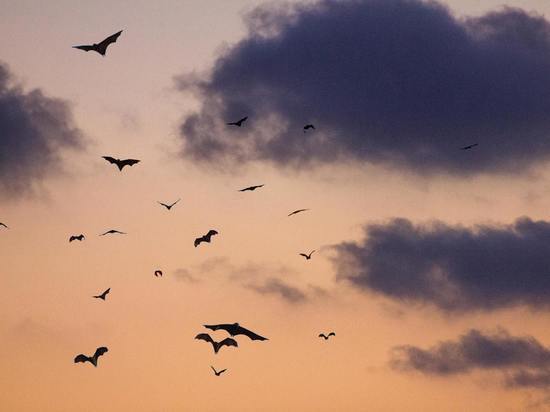American scientists have rediscovered a dangerous coronavirus in Russian mice
[ad_1]

And passed it off as a sensation
A dangerous coronavirus capable of infecting humans was “found” by American scientists in Russian bats. The virus was named Khosta-2. It has the same spike proteins that can bind to human cells as SARS-CoV-2, and it is also resistant to all coronavirus vaccines, according to researchers. But the word “found” here is taken in quotation marks not by chance.
An article from the staff of Washington State University (Washington State University) was published recently in the scientific journal PLoS Pathogens. However, Russian scientists from the Center. Gamalei, the true discoverers of Khosta-2, explained to us that this publication almost one to one repeated their joint article with representatives of another US university (University of Washington), which was published in the summer in the journal Nature. For an explanation of the possible danger of the Khosta-2 virus, we turned to the primary source of information – a virologist, head of the biotechnology laboratory of the Center. Gamaleya to Sergei Alkhovsky.
It should be noted that MK has already written about the discovery of viruses “Hosta-1” and “Hosta-2” in the caves between Sochi and Adler. The study was conducted by a group of employees of the National Research Center for Epidemiology and Microbiology. N.F. Gamaleya, Institute of Medical Primatology and Sochi National Park. Scientists examined five caves: Museum, Khosta 1, Kolokolnaya, Partizanskaya, Krasnoaleksandrovskaya, located in the valleys of the Khosta and Kudepsta rivers. In each, according to Alkhovsky, 10-30 flying inhabitants were caught, from which smears were taken from the oral cavity. The focus was on the large (Rhinolophus ferrumequinum) and small (Rhinolophus hipposideros) horseshoe bats, as they are known reservoirs of SARS-like coronaviruses.
Thus, two new coronaviruses were found in Sochi bats: Hosta-1 and Hosta-2. Their genetic similarity with the Chinese SARS and SARS-CoV-2 viruses ranged from 85% to 95% for different genes. Based on this, the researchers stated: they got viruses very close to pathogenic.
Then, for two years, scientists studied Khosta-1 and Khosta-2.
At first we worked alone,” Alkhovsky says. “After analyzing the genome, we came to the conclusion that the most common Hosta-1 does not pose a threat to humans, but with the rarer Hosta-2, everything turned out to be more complicated. It is able to bind to the human ACE2 receptor. The second stage of work was carried out jointly with colleagues from overseas. Our Hosta-1 and Hosta-2 viruses were included in their joint work to evaluate a large group of bat viruses for their ability to infect human cells.
Have you sent virus samples to the US?
– No. They used the sequences we prepared, or the genetic sequences of the virus, with our verification, with our analysis. Then they modeled the Hosta-2 virus in their American laboratory.
“And he really turned out to be able to penetrate the cell?”
– Yes, he can. But it is not yet capable of causing disease in humans. Let’s just say that it is dangerous for its future mutations when crossed with SARS-CoV-2 and other viruses.
– Your American colleagues write that it is resistant to monoclonal antibodies and vaccines. Do you confirm this?
– Of course. This cannot be confirmed even without serious research. In an article by American scientists who simply used the data of our scientific group, this is given as a kind of discovery. But in fact, this is obvious, which is clear even to a schoolboy: all viruses isolated from bats are resistant to all created vaccines and monoclonal antibodies against COVID-19. Because SARS-CoV-2 is a mutated virus. It differs significantly from what is isolated from bats.
– When we talked last year, you said that all the examined animals from the Sochi caves were released into the wild, as they are in the Red Book. Now, given the new knowledge about them, are you not afraid that they and their other relatives can become a source of human infection?
– Yes, indeed, not a single bat suffered from our experiments. And we hope that people will not suffer from them either. The rules for using the Sochi National Park say that it is forbidden to enter the caves on its territory. We hope that local residents and tourists will take this into account. Let me remind you again – the Hosta-2 virus is not pathogenic for humans, but just in case, caution does not hurt.
[ad_2]
Source link








